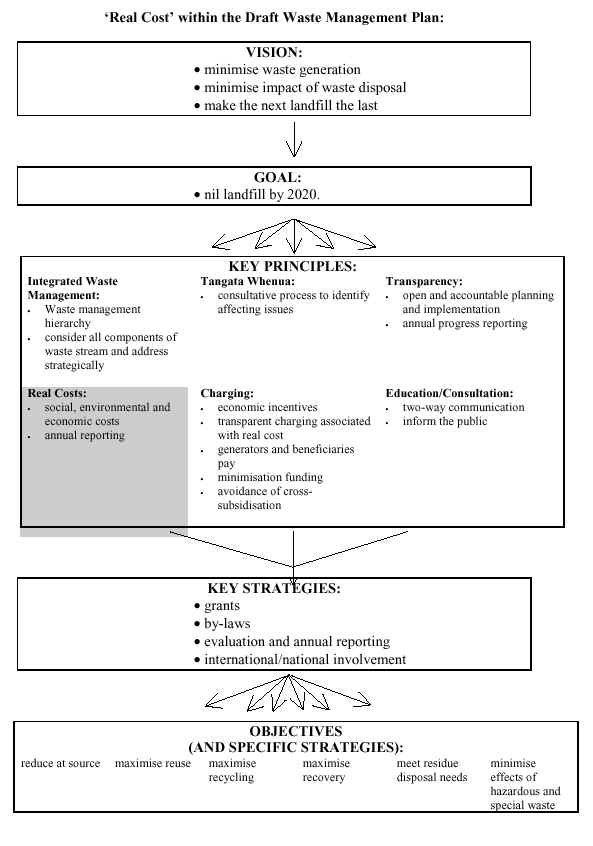![]()
Principle four of the Draft Waste Management Plan for Solid and Hazardous Waste 1998 states that the "real costs of waste management shall include social, environmental and economic costs and these will be assessed and reported annually". As shown in the diagram on the following page, `real cost' (ie. total cost) is one of six principles which address the plan's goal to end landfilling by 2020. This goal is in turn an expression of the plan's overall vision of minimising waste generation and disposal.
The key principles of the plan are inter-related. Principle Four influences on the others and is influenced by them. They are summarised as follows:
1. The first principle, integrated waste management, means that the waste stream is considered as a system, the components of which need to be considered one by one to identify the most strategic approaches to meeting the plan's goals. Total cost must therefore identify and work with components of the waste management system.
2. The principle on tangata whenua identifies Maori as a particularly significant affected party. Development of a total cost framework should therefore give specific consideration to the effects of waste management on Maori.
3. Transparency, accountability and the importance of annual reporting are emphasised in Principle Three. This means a framework for Total Cost Assessment must be very clear (possible to communicate to the public) and reveal lines of accountability.
5. Principle five is about charging of generators or users, directly associated with the `real cost', in order to provide economic incentives and generate funding to achieve the plan's goal.
6. The informed involvement of the community in waste management policy development and implementation is given emphasis in the plan through principle six. Education and consultation are identified as the vital components of this principle.
A total cost framework must therefore contribute to clearly identifying what the costs are and how they can be attributed to waste management activities and ultimately generation.
Key strategies suggest tools for the implementation of the principles. The main tools suggested are the funding of groups or individuals who are promoting the principles, by-laws (including the licensing of private operators), regular performance evaluation and reporting, and the utilisation and influence of international and national supports. Five objectives respond to the waste management hierarchy, and specific strategies pertaining to the achievement of each of them are provided. The final objective provides strategies for the management of hazardous and special wastes.
